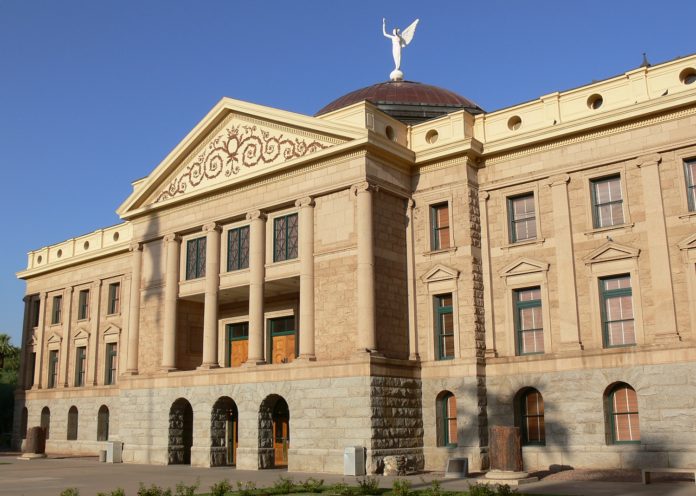
Democrats in the Arizona House opposed to the expansion of school vouchers failed to block a Republican-backed measure that would slightly increase the reach of the state’s current program.
The House approved the expansion on a party-line vote Thursday after an hours-long debate. It now goes to Republican Gov. Doug Ducey for his expected signature since the Senate has already approved the measure.
The proposal is billed as a permanent fix to an issue that cropped up last year when the new state schools chief discovered that a handful of children on the Navajo Nation were illegally using vouchers to attend a private school in New Mexico.
Democrats said this year’s measure is far more broad than a temporary fix passed last year. That proposal just allowed seven children attending the Hilltop Christian School to continue going there this school year.
Opponents, including leaders of a group that blocked a statewide expansion of the private school voucher program called Empowerment Scholarship Accounts, have called the measure a slippery slope that would allow a massive expansion. They noted the proposal allows any child living on a reservation to attend a private school in a nearby state if it’s within 2 miles (3.2 kilometers) of the border, not just the children already attending that school.
But Republicans dismissed that, saying they were just making the fix permanent.
“This is something that’s already in place that we temporarily did last year. We’re just extending it,” GOP Rep. Regina Cobb said. “It doesn’t expand the empowerment scholarships.”
Democratic Rep. Randall Friese said that was clearly not the case, saying new students could go to Hilltop using vouchers. He failed to get lawmakers to amend the proposal so it would affect just the current students.
“The underlying bill is expansion,” Friese said. “We’re allowing more students to attend the Hilltop School.”
Democrats warned that the proposal creates a precedent that will allow voucher cash to be used outside Arizona.
The bill also removes some oversight from the Department of Education, now run by a Democrat, and sets up a dedicated call center for parents in the program. It also sets up dedicated funding for administration and bars parents from moving voucher money to college savings accounts.
The measure passed the Senate on a 16-14 vote with all Republicans except Sen. Heather Carter in support and all Democrats opposed. The 31 House Republicans backed the measure Thursday, with all 27 Democrats who were present voting no.
Arizona’s school vouchers, technically called Empowerment Scholarship Accounts, allow parents to use state funds to send their children to private schools or pay for other education costs. The program only applied to students with disabilities when it began in 2011 but has been greatly expanded over the years to cover many others. It currently is capped at about 30,000 students, although only about 8,200 students are now enrolled. The current cost is about $110 million a year.
Parents get 90% of the state funds that normally go to their local public school to use for private school tuition and other education costs. Disabled students can receive up to $40,000 for specialized therapy.
A 2017 law repealed by voters the following year would have allowed all 1.1 million Arizona schoolchildren to apply for private school vouchers, but put a cap on enrollment. The repeal didn’t block future expansions.
A new citizen’s initiative being circulated by voucher opponents Save Our Schools Arizona would limit the program to 1% of the state’s school population per year, or about 11,000 students. It would also give existing students priority and put disabled students first in line for new vouchers. It would also boost accountability and bar parents from holding onto the cash they receive past the school year.
That’s an important change, since a review of data by the Arizona Capitol Times last month revealed that nine parents had amassed more than $100,000 in their accounts. Current law allows that, and lets parents use it for college or other education costs even after a child graduates from high school.
Republished with the Permission of the Associated Press.













